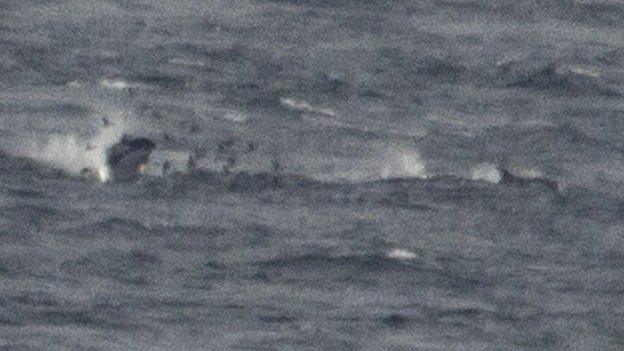Rare white-beaked dolphins spotted off Essex coast
- Published
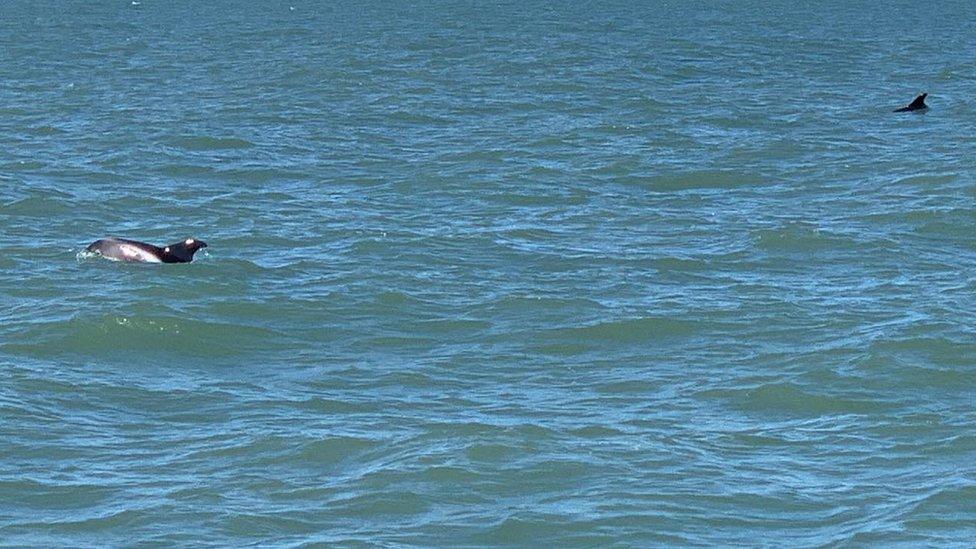
Stacey Belbin said spotting the white-beaked dolphins left her "emotional"
"Rare" white-beaked dolphins have been spotted off the Essex coast for the first time in 21 years, a marine environmental charity said.
A pod of between eight and 12 mammals were seen by Stacey and Scott Belbin, from Mersea Island, on 22 April.
Mrs Belbin said it was "a once in a lifetime experience", as first reported in the Daily Gazette, external,
The Sea Watch Foundation, external said: "The rarity is the fact that this species is not common at all to Essex."
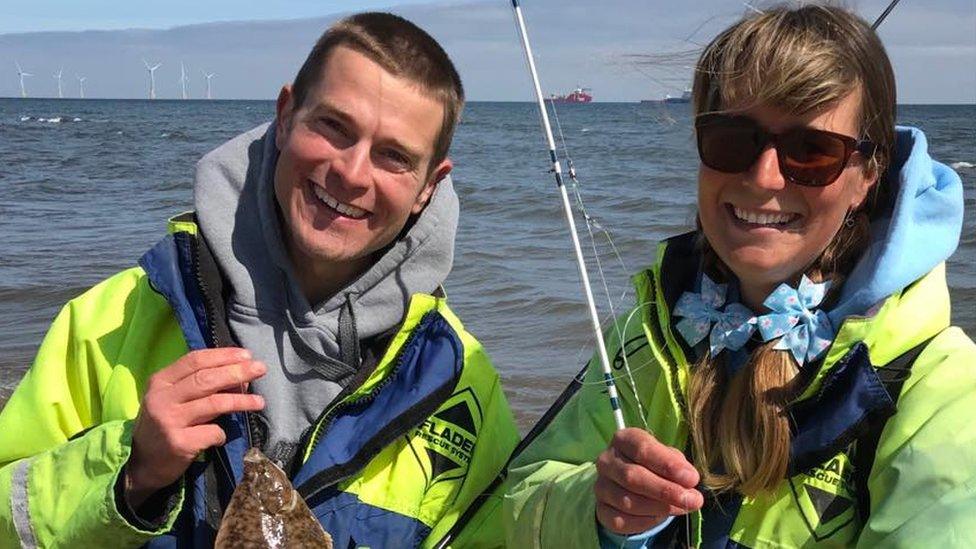
Stacey and Scott Belbin said they were very lucky to see such an "amazing and special sight"
Chiara Giulia Bertulli, Sea Watch sightings officer, said: "From 2000 to 2021 this is the first white-beaked dolphin sighting which has been recorded off Essex.
"We hope this information will shed light into this species' distribution and movements in UK waters.
"The animals were identified based on the placement of white, light and dark grey body colouration patterns, and by the absence of yellow-ochre streaks on the flanks behind the dorsal fin, distinguishing them from the Atlantic white-sided dolphin and other dolphin species."

White-beaked dolphin

A white-beaked dolphin photographed off the coast of Iceland
Lives in North Atlantic on continental shelves and open waters
In UK, more usually seen Hebrides but also off north-east England and sometimes in Lyme Bay on south English coast
up to 3.2m long (10.5ft) and weighs up to 350kg (55 stone)
mostly black in colour, with white underbelly, white beak and distinctive white flashes on sides and back
usually found in pods of 5-10, but can swim in much larger groups
Source: The Wildlife Trusts, external

Mrs Belbin, 33, who runs Lady Grace Boat Trips, was on a chartered fishing trip, aboard her husband Scott's boat when they saw the pod.
She will not reveal the exact location.
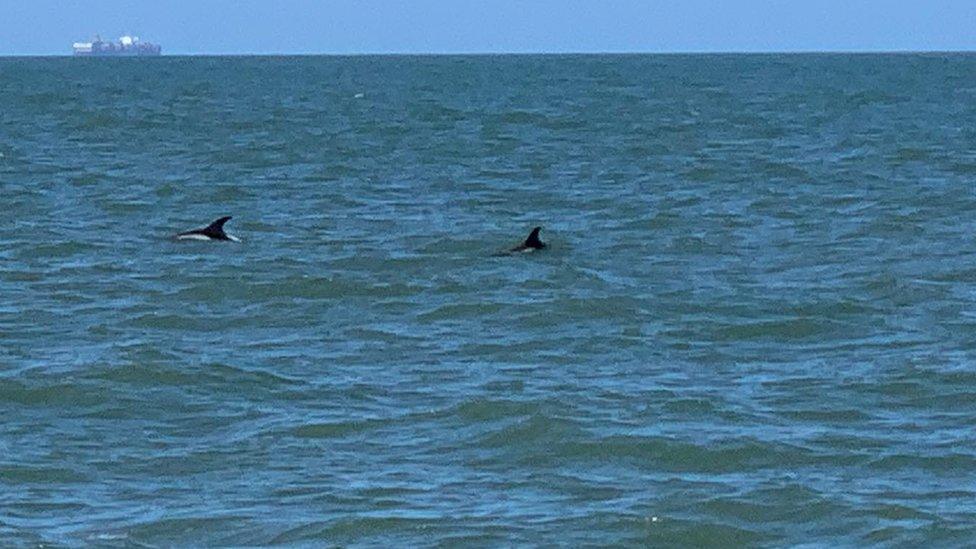
Stacey Belbin caught the moment she spotted the dolphins on her mobile phone
"I knew it wasn't normal, it's nothing like we've seen before. It's very, very, rare," she said.
"We're used to seeing marine mammals, like common and grey seals, porpoises, pilot, minke and fin whales, as well as bottlenose and common dolphins.
"I've been on the water since I was tiny, but this was a once-in-a-lifetime experience. I doubt I will see them again.
"As soon as we saw them we stopped the boat, we looked for about 15 minutes, watched them safely, not too spook them and then moved on."
They were only about 50 yards (45m) away, she added.
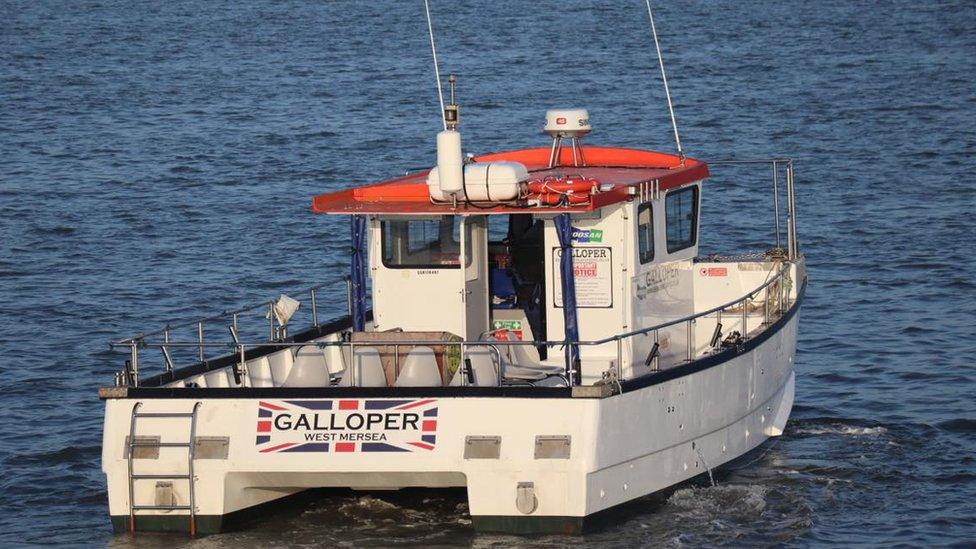
The couple were on her husband's fishing boat, the Galloper, when they saw the pod of white-beaked dolphins

Find BBC News: East of England on Facebook, external, Instagram, external and Twitter, external. If you have a story suggestion email eastofenglandnews@bbc.co.uk, external
Related topics
- Published21 July 2020
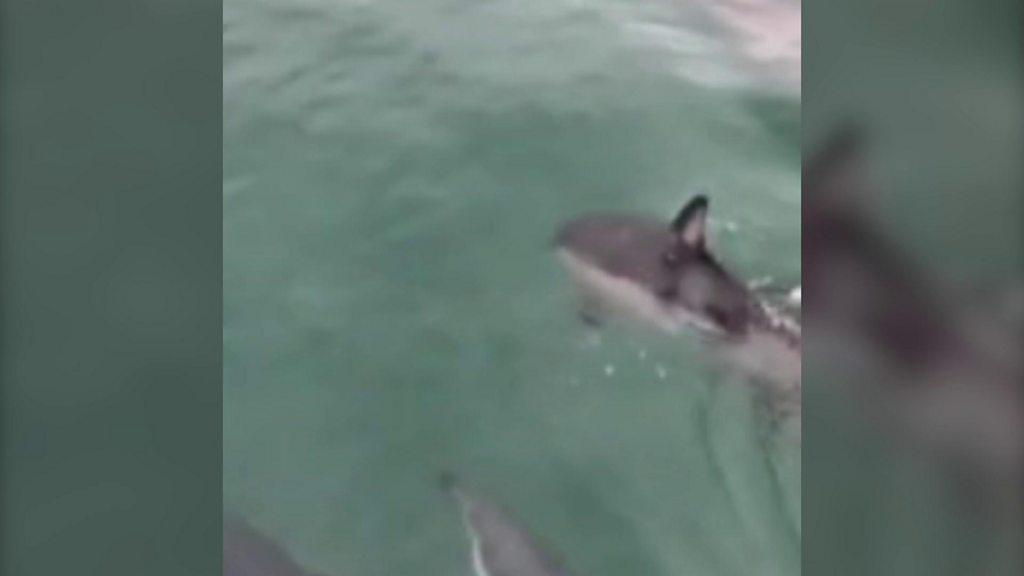
- Published22 January 2020
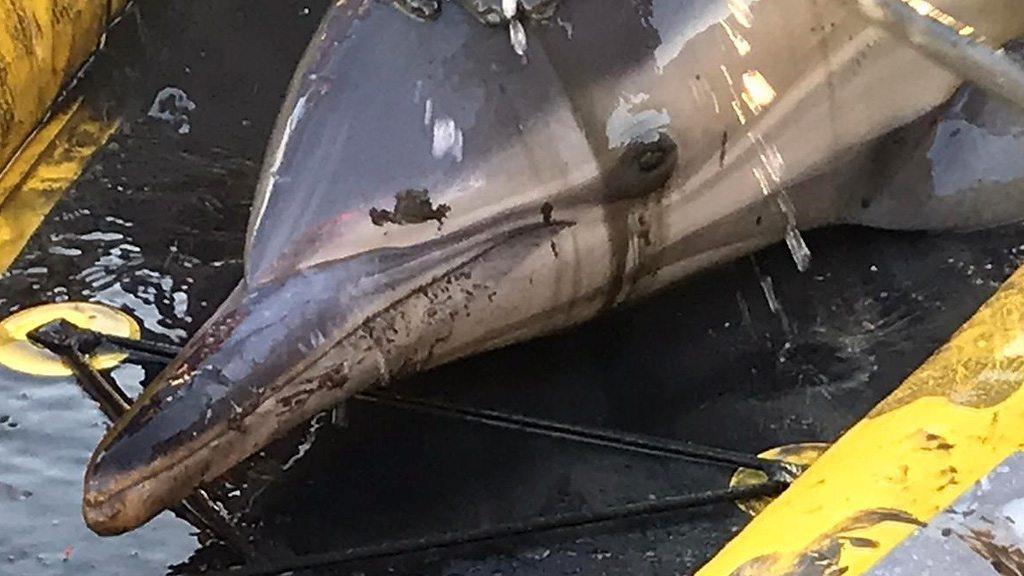
- Published20 January 2020
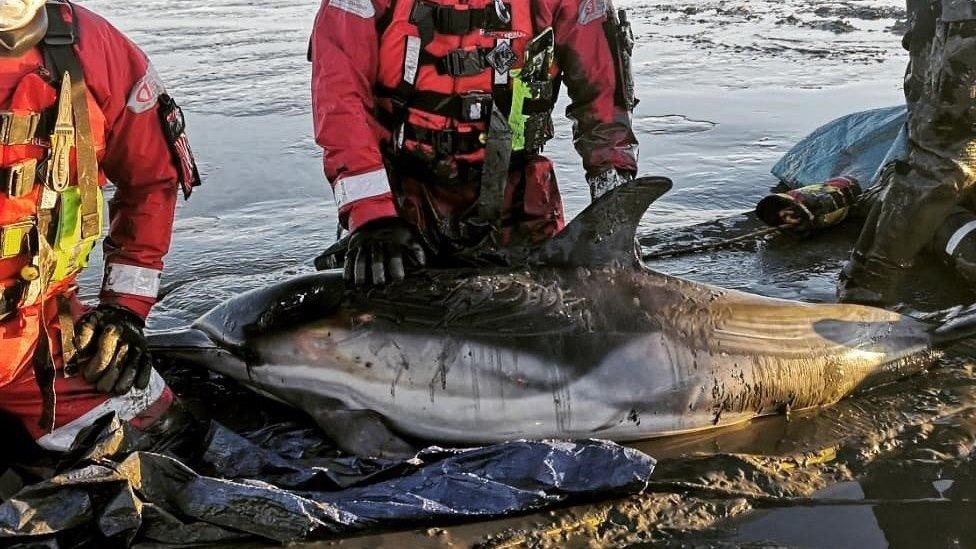
- Published31 December 2019
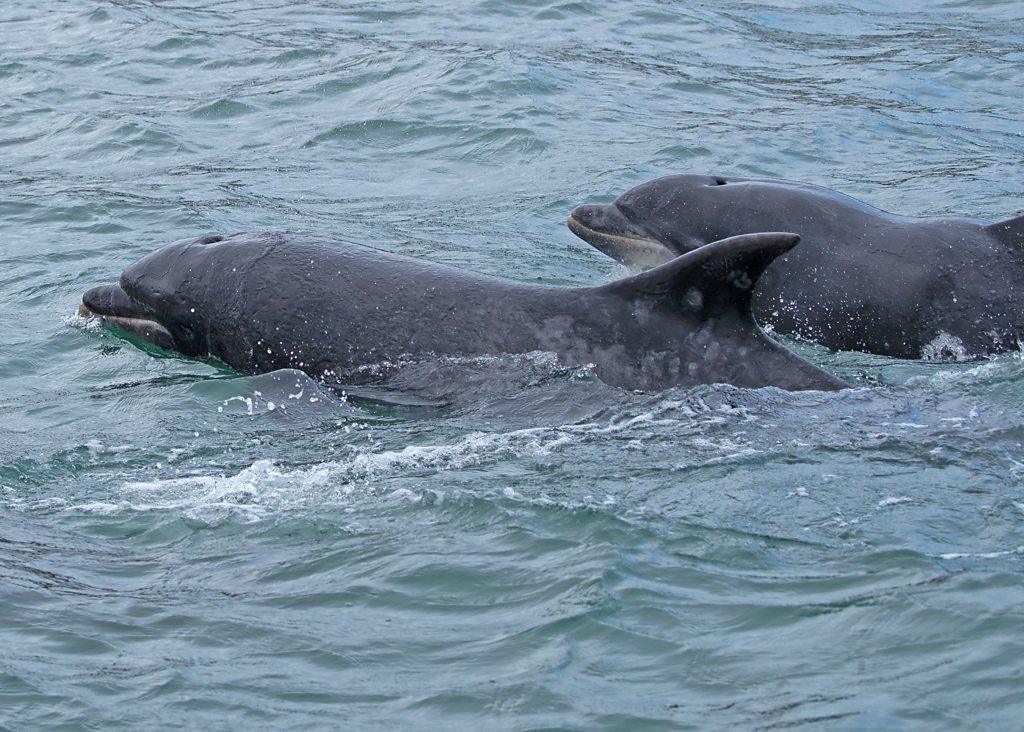
- Published23 May 2012
